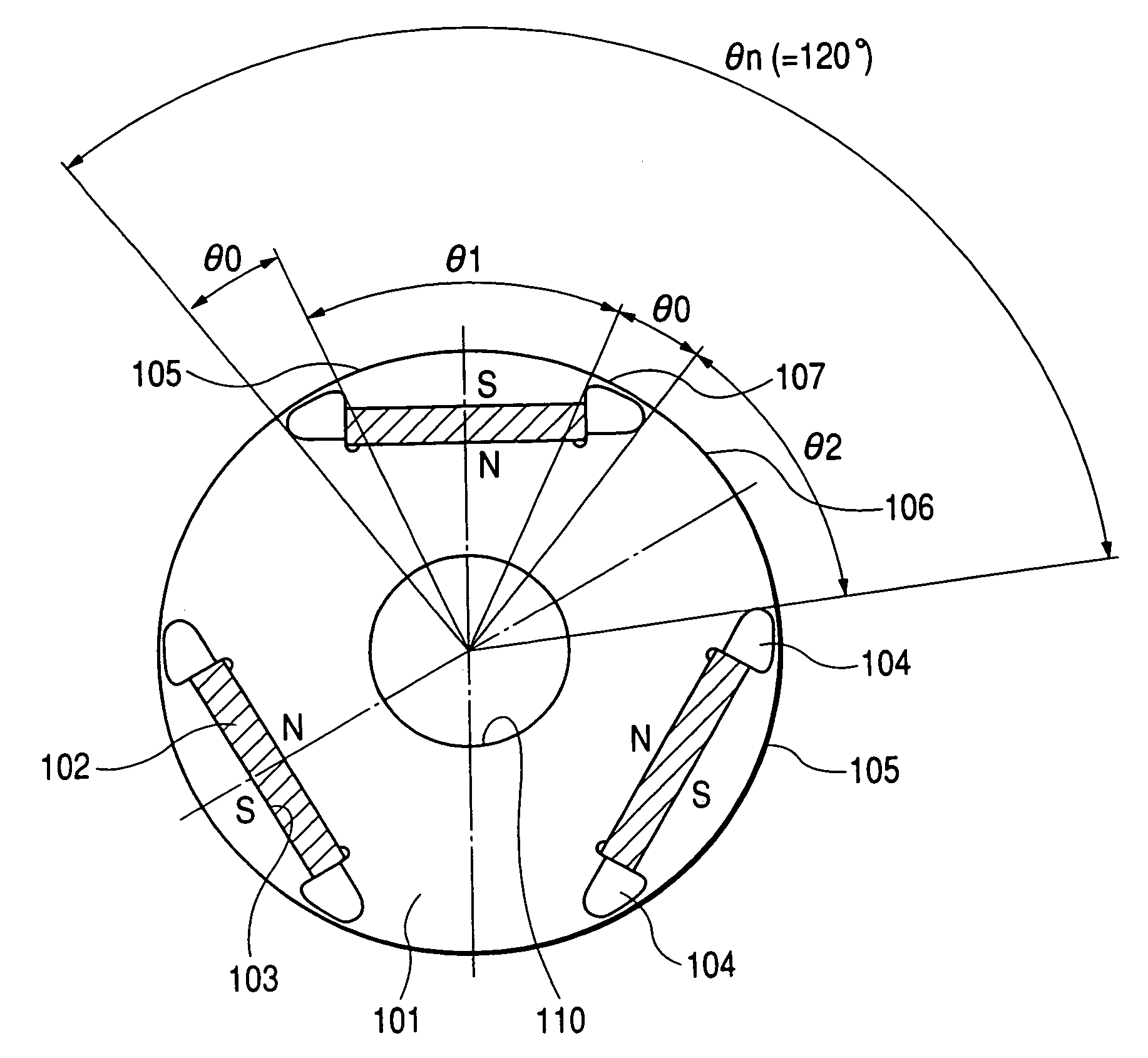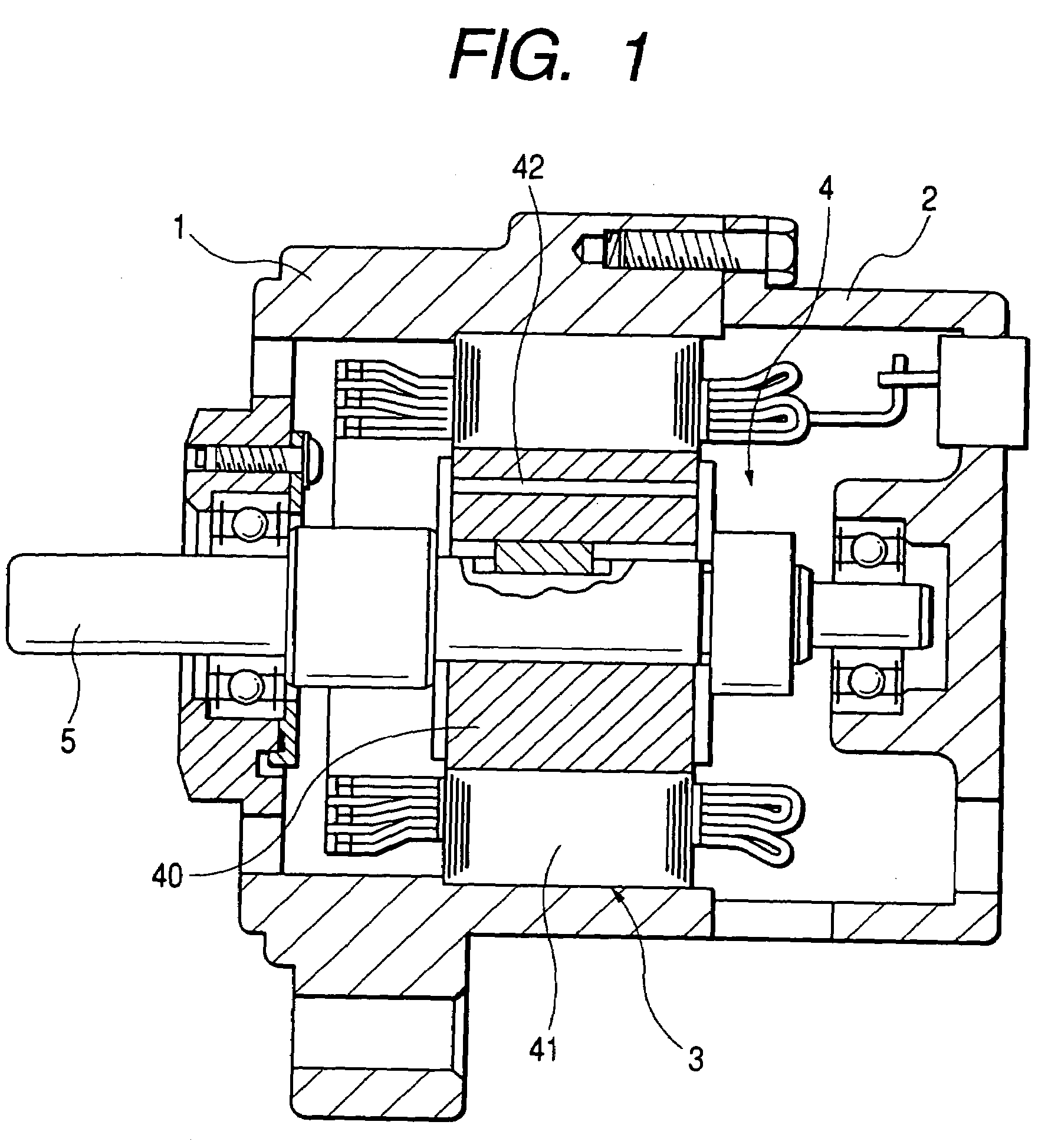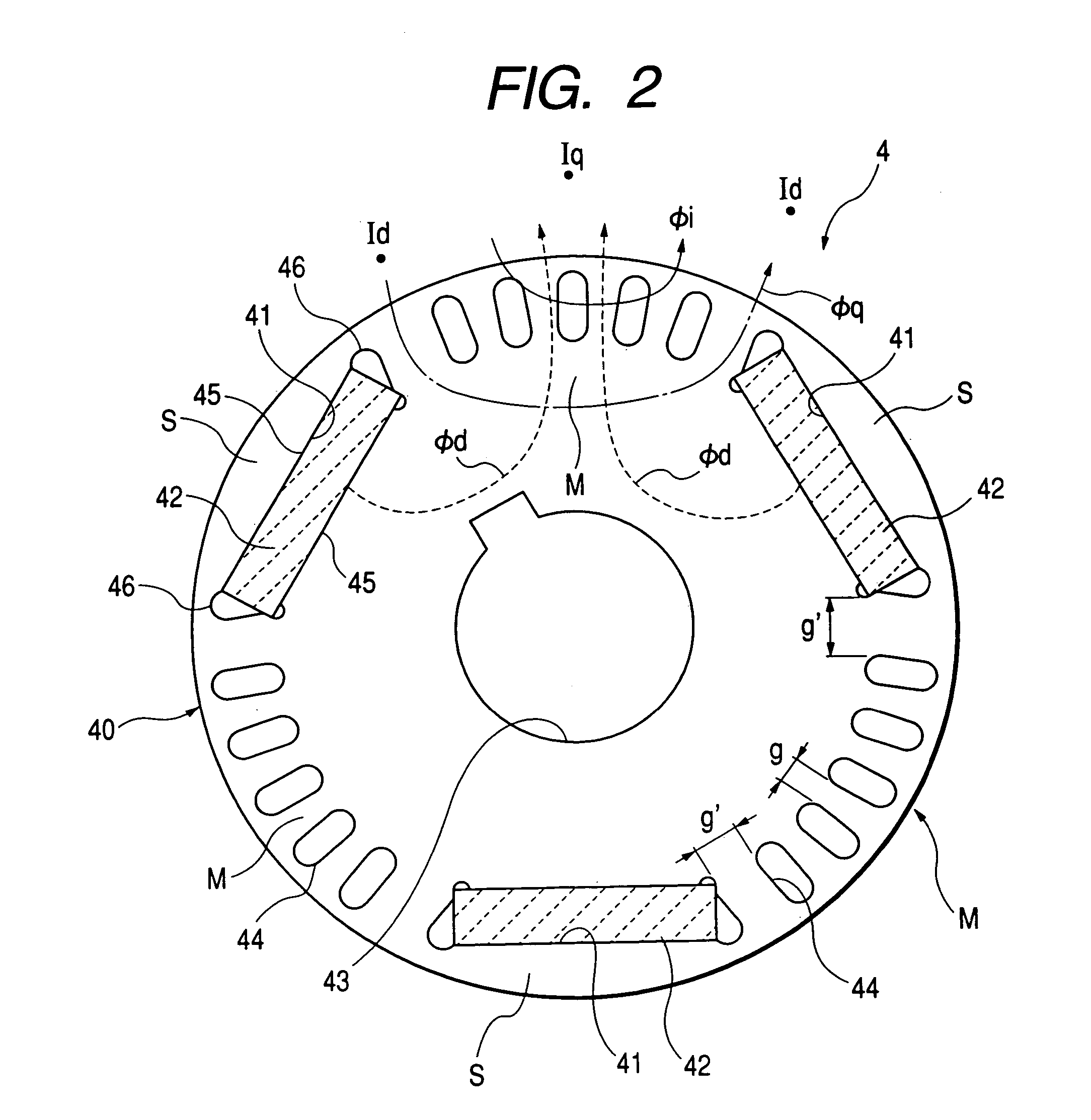Permanent-magnet rotor for an inner rotor type electric rotary machine and magnet-saving type rotor for a synchronous motor
a technology of permanent magnet rotor and inner rotor, which is applied in the direction of dynamo-electric machines, magnetic circuit rotating parts, and magnetic circuit shape/form/construction, etc., can solve the problems of affecting the operation of the motor, the motor size or weight will increase inevitably, and the motor performance will deteriorate, so as to suppress the increase of motor size and weight, the effect of easy magnetization
- Summary
- Abstract
- Description
- Claims
- Application Information
AI Technical Summary
Benefits of technology
Problems solved by technology
Method used
Image
Examples
first embodiment
[0078]FIG. 1 shows an inner rotor type IPM constituting a 6-pole three-phase synchronous motor.
[0079]A front housing 1 and a rear housing 2 are connected securely with tightening bolts. A stator 3 is fixed on an inner cylindrical surface of the front housing 1. A rotor 4 is accommodated at a radial inner side of the stator 3. The rotor 4 is securely fixed around a rotor shaft 5. The rotor shaft 5 is supported by the housings 1 and 2 via bearings. The rotor 4 includes a rotor core 40 made of multilayered electromagnetic steel plates and permanent magnets 42 installed in magnet insertion holes 41 of this rotor core 40.
[0080]FIG. 2 is a cross-sectional view of the rotor 4 taken along a plane normal to the axis of the rotor 4, although a hatching showing the cross section of rotor core 40 is omitted. In addition to the above-described magnet insertion holes 41, the rotor core 40 has a rotary shaft hole 43 extending in the axial direction into which the rotor shaft 5 is inserted by press...
second embodiment
[0094]A second embodiment of the present invention is different from the above-described embodiment only in that the vacant holes 44 are provided with a basket type wiring formed by aluminum die-cast. This makes it possible to suppress the generation of induction torque and prevent the motor from going into a disordered or non-synchronous condition. Although, additionally providing the basket type wiring is conventionally known, there was severe spatial restriction in installing this kind of wiring because an available space is limited to a narrow region between the magnet insertion holes 41 and the outer cylindrical surface of the rotor core 40. The magnet path resistance of the magnet flux was large. On the other hand, according to this embodiment, the basket type wiring is easily installed in a wide region where the magnet insertion holes 41 are omitted. Thus, this embodiment solves the conventional problem.
third embodiment
[0095]FIG. 3 shows a modified permanent-magnet rotor in accordance with a third embodiment of the present invention. According to this embodiment, vacant holes 44′ are arrayed in a predetermined matrix pattern with two lines extending in the radial direction and seven rows extending in the circumferential direction of the rotor core 40. Respective vacant holes 44′ extend in the axial direction of the rotor core 40. With this arrangement, both the magnetic path for passing the magnet fluxes Φd and the magnetic path for passing the q-axis current fluxes Φq can be adequately formed. The magnet fluxes Φd is indicated by dotted lines. The q-axis current fluxes Φq, producing the reluctance torque, is indicated by solid lines.
[0096]The rest of the third embodiment is the same as that of the first embodiment.
PUM
 Login to View More
Login to View More Abstract
Description
Claims
Application Information
 Login to View More
Login to View More - R&D
- Intellectual Property
- Life Sciences
- Materials
- Tech Scout
- Unparalleled Data Quality
- Higher Quality Content
- 60% Fewer Hallucinations
Browse by: Latest US Patents, China's latest patents, Technical Efficacy Thesaurus, Application Domain, Technology Topic, Popular Technical Reports.
© 2025 PatSnap. All rights reserved.Legal|Privacy policy|Modern Slavery Act Transparency Statement|Sitemap|About US| Contact US: help@patsnap.com



